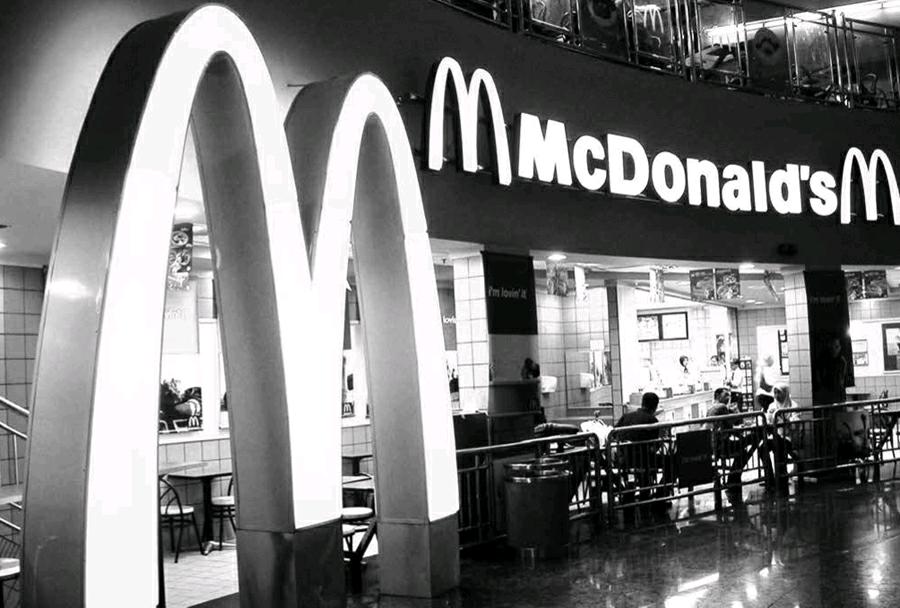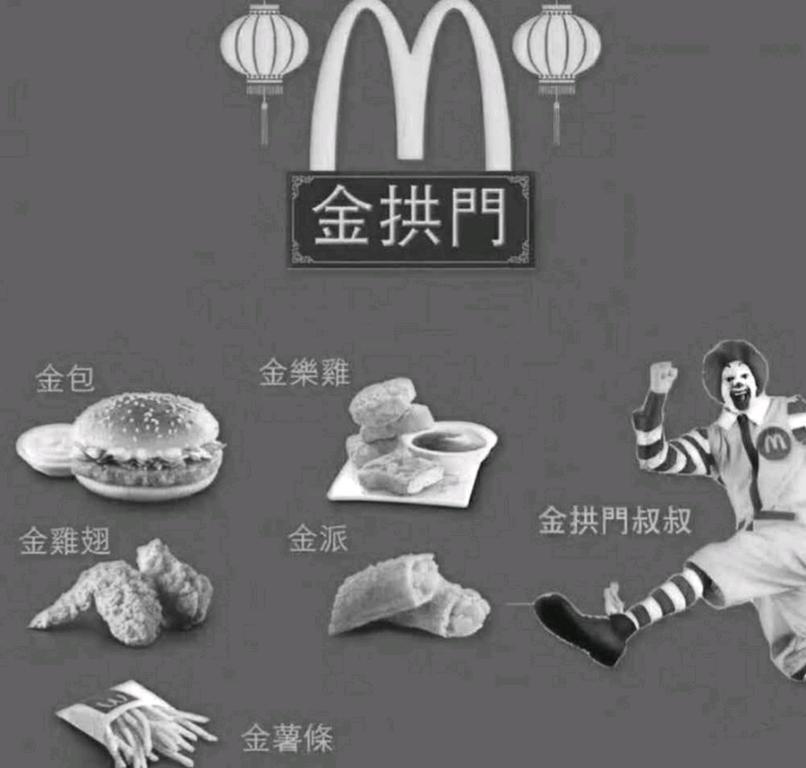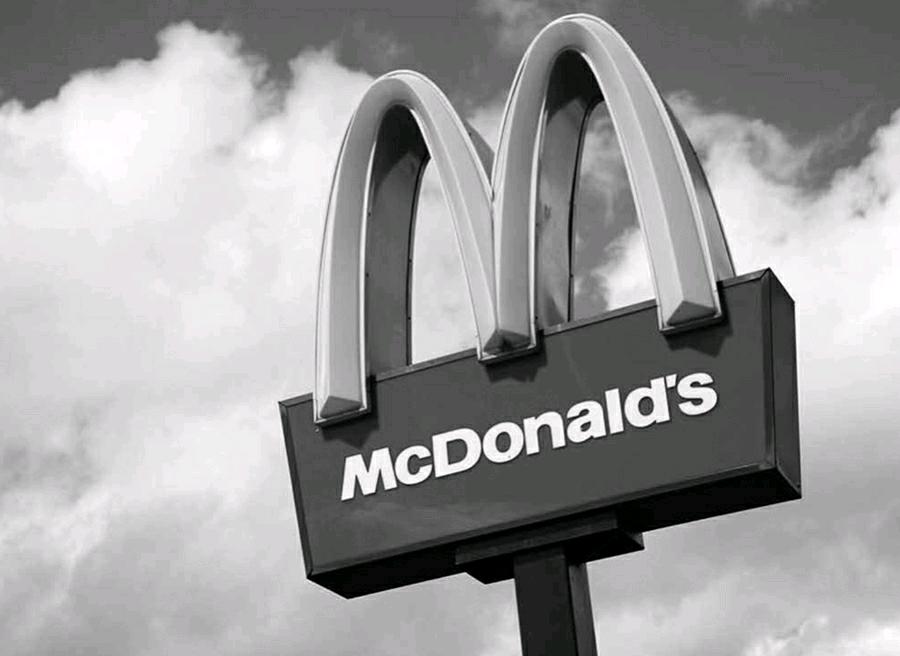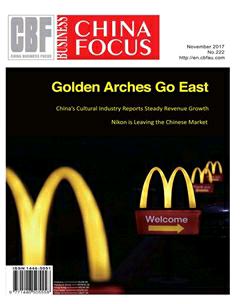McDonald’s China Changes Its Name
The U.S. fast-food giant has changed its official business name in the country, ditching the previous one -- Maidanglao, a Chinese rendering of its English name -- in favor of Jingongmen, which roughly translates as “Golden Arches.”
Though the change from iconic McDonalds would seem like a huge deal, “the name change only applies to the chains business registration,” a spokesperson said. The “restaurants branding will stay the same” and likely not have any major effect on the companys business.
Picking names with more foreign appeal is not unusual for big name brands. Both Coca Cola and Google have adopted different monikers over- seas.
The Chinese name change comes at a time when McDonalds is looking into rapid growth in the Asian market, expanding in China as well as South Korea.
The New Name Puzzles Chinese Customers
A name change for McDonalds in China has left some diners with a funny taste in their mouths.
Although the fast food chain reassured its fans on its Weibo microblog that stores in China will still bear the old name, the new moniker was immediately ridiculed by net users for sounding unsophisticated.
“Jingongmen sounds like a name for a Peking duck restaurant or a tradi- tional Chinese medicine store,” one Weibo user wrote, suggesting the company add “time-honored brand” to double down on the new names old-fashioned connotations.
The new name “sounds like a furniture store. Are you sure the food is edible?” asked LEON0221 on Weibo (WB), Chinas equivalent of Twitter (TWTR, Tech30).
Another Weibo user, Magellandechuan, said the name made McDonalds sound like one of Chinas stuffy stateowned companies and was “not fitting for a foreign brand.” Others complained it was “rustic” or backward.
Not everyone was unhappy, though. One user suggested objectors needed a lesson in McDonalds history, recommending they watch “The Founder,” the Hollywood biopic about McDonalds Ray Kroc, to understand the significance of Golden Arches.
In any case, McDonalds fans in China shouldnt ditch their Big Macs and Chicken McNuggets just yet. A company spokeswoman in Shanghai said that the name change only applies to the chains business registration and that restaurants branding will stay the same.
The tweak to the business name comes after McDonalds U.S. parent firm earlier this year sold most of its business in China and Hong Kong to a Chinese consortium for more than $2 billion.endprint
China isnt the only market where McDonalds uses the Golden Arches name. In the Philippines, the restaurant chain is registered as “Golden Arches Development Corporation.”
Its common for big Western brands to pick a Chinese name in a bid to broaden their appeal with consumers in the country. Coca-Cola (CCE) is known as Ke kou ke le, which translates as“tasty and fun.” Search engine Google(GOOG) goes by Gu ge, or “harvesting song.”
Picking a Chinese name can be tricky for foreign brands. U.S. home- sharing company Airbnb earlier this year chose “Aibiying,” or “welcome each other with love,” for its Chinese operations, but the name was badly received for being difficult to pronounce. Last month, NBA team Dallas Mavericks asked its fans to come up with a new Chinese name because the current xiaoniu is a mistranslation, meaning “little cows.”
Facing Challenges in China
McDonalds has been in China since 1990 and has about 2,500 outlets in the country. It plans to open another 2,000 over the next five years.
A McDonalds China spokesperson said that the name change was made to meet “the needs of business development” after the fast food chain sold a bulk of its China and Hong Kong operations to financial conglomerate CITIC Group and American investment company Carlyle Capital in January.
CITIC Group, a massive Chinese financial firm, is taking the majority stake in McDonalds (MCD) operations in mainland China and Hong Kong.
U.S. private equity giant The Carlyle Group, is also buying into the investment combo, taking a 28% stake. McDonalds will hold the remaining 20% of the business.
McDonalds CEO Steve Easterbrook said the fast food companys new partners would bring a better understanding of the Chinese market.
The deal is the latest move in Easterbrooks efforts to overhaul the global burger chain. In the U.S., it has launched more customized sandwiches with fancier ingredients, introduced allday breakfast to the menu and brought in touch screens and table service.
Customers in China could also see changes soon. McDonalds says “menu innovation” and using digital technology are priorities for the new Chinese business.
Bringing in Citic and Carlyle doesnt mean the McDonalds brand is pulling back in China, where the economy is slowing down after decades of rapid growth.
The partners say theyre aiming to open more than 1,500 new restaurants in China and Hong Kong over the next five years, with a focus on bringing the golden arches to smaller Chinese cities.endprint

McDonalds aim is to drastically reduce the number of stores it owns in favor of franchises. The China deal will enable it to slash its company-owned stores by 1,750.
McDonalds announcement follows Yum Brands spinoff of its China division late last year. The decision by the KFC parent came after pressure from activist shareholders.
Both big U.S. fast food companies had suffered in China in recent years after food safety scandals.
McDonalds and Yum (YUM) reported improving results at their Chinese businesses last year until they were hit by anti-U.S. protests in July.
In July 2014, a local reporter in Shanghai secretly captured footage of contaminated meat being processed inside a factory – Shanghai Husi Food– a subsidiary of American-based OSI group.
Apart from bad meat being processed, the video also captures workers using expired meat products. The video went viral in the country, forcing the Shanghai Municipal Food and Drug Administration to investigate the processing unit. Upon investigation, the officials found that expired meat products(chicken and beef) were repackaged and processed with new expiration dates, with around 3,000 cases of contaminated beef cases already sold.
Shanghai Husi Food had been supplying meat products to various fast food chains such as McDonalds, Starbucks, Papa Johns, Yum Brands and Burger King in several cities of China. Unlike Yum Brands, which has discontinued its operation with the supplier, McDonalds decided to continue its 50-year long business with the food processing group by using a different OSI plant. McDonalds believes that the quality of meat is still better than the local alternatives and mentions that the company will ensure high quality of meat in future. The company is switching its Shanghai Husi plant to an OSIowned plant in Henan province and will rely on an additional third undisclosed Husi plant for its meat supplies. endprint
endprint

